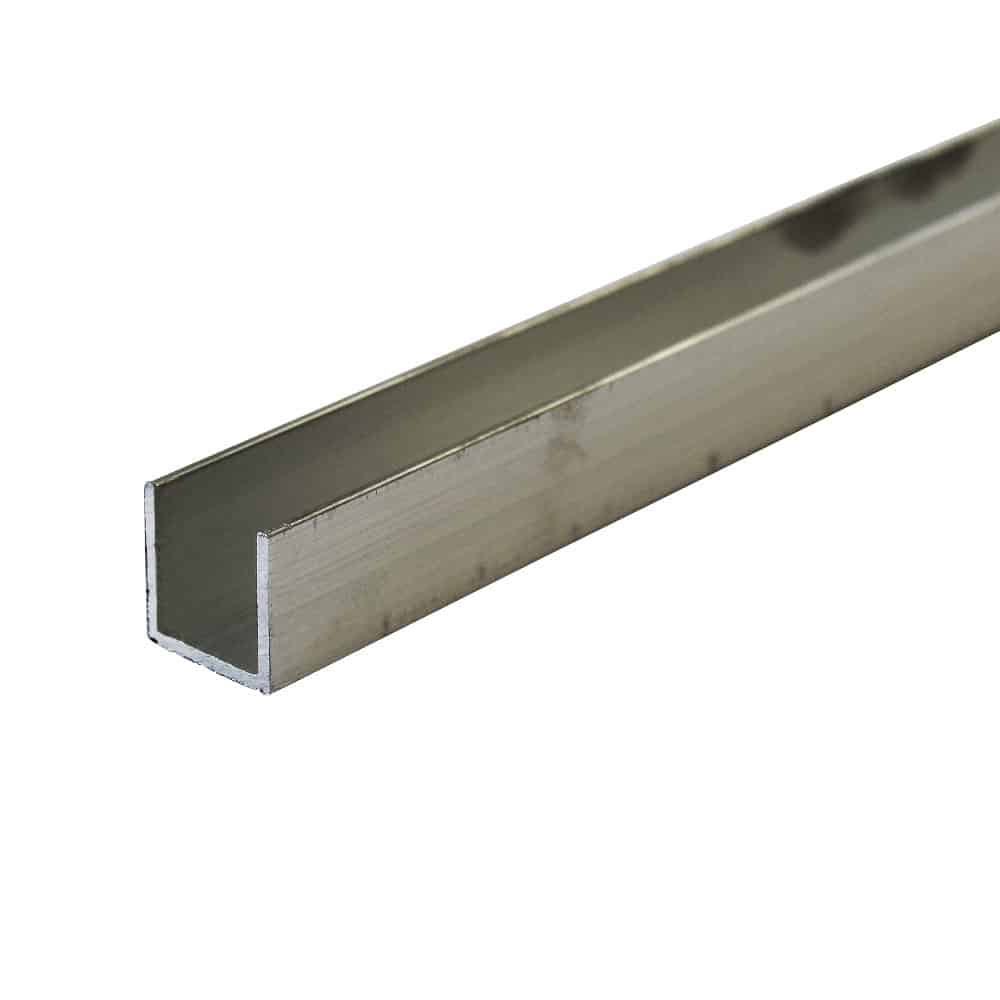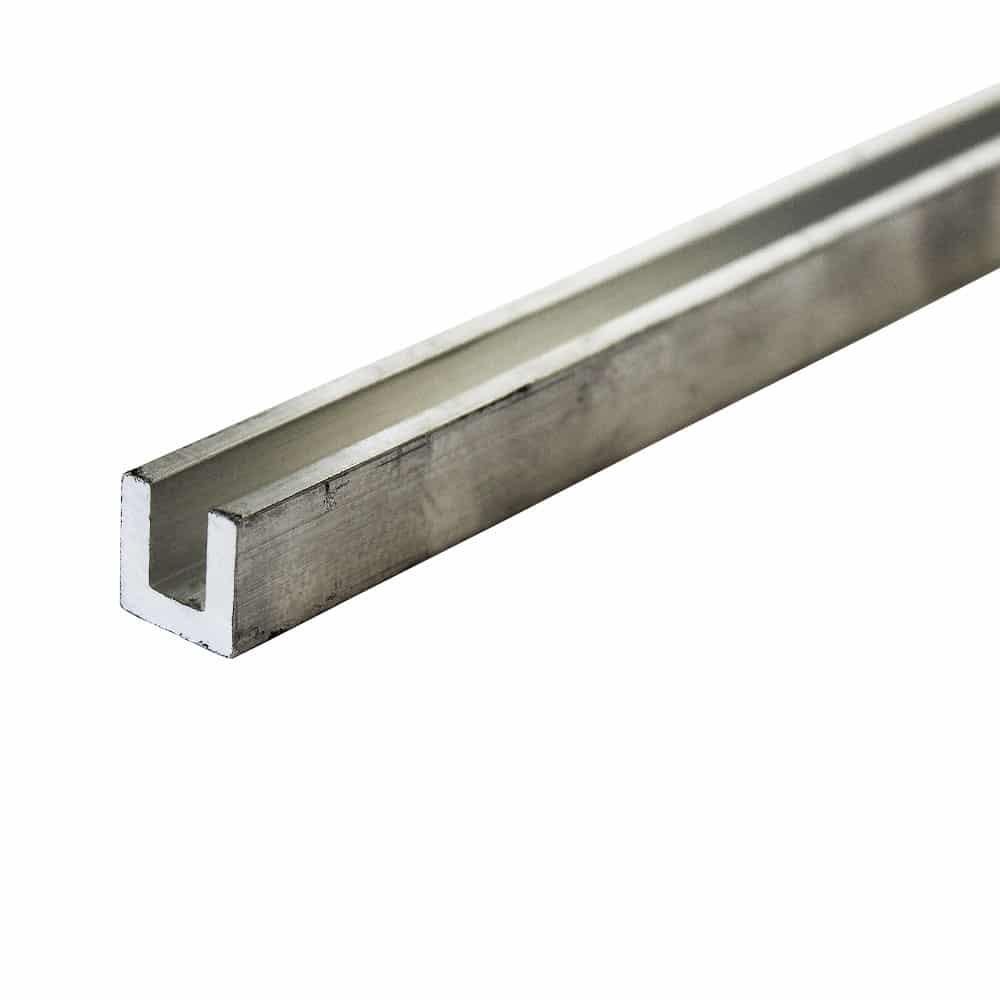- Massive Range
- FREE UK Delivery
- Rapid Dispatch
- Massive Range
- FREE UK Delivery
- Rapid Dispatch
- Massive Range
- FREE UK Delivery
- Rapid Dispatch
£18.49 – £53.49 inc VAT

Secure payments taken with:

This website is secured:
£ MULTIBUY SAVINGS – Order 3 For 10% Off
✔ Specialists In Rapid Shipments Of Any Size
✔ FREE UK Delivery Included
✔ Immediate Express Dispatch From Stock
✔ Tracked Delivery with Order Updates
✔ 30-Day Returns Accepted
@ ☏ Bespoke Cuts & Longer Lengths Available
When you’re looking for a versatile metal option, aluminium 1.1/4 x 1.1/4 x 1/8 u channel sections from specialty metals are an excellent choice. Not only is this material lightweight, but it’s also highly resistant to corrosion, making it perfect for a range of manufacturing applications. In addition to its durability, this type of aluminium is malleable enough to work with and shape easily. And best of all, it’s completely recyclable, making it a great choice for your eco-conscious projects. But let’s not forget about the aesthetic benefits of u channel aluminium – its shiny finish adds an attractive touch to any application. With all these great features in mind, it’s clear that aluminium 1.1/4 x 1.1/4 x 1/8 u channel sections are a top pick for any project where strength and durability are a must.

Are you looking for a versatile and reliable material for your next project? Aluminium 1.1/4 x 1.1/4 x 1/8 U Channel Sections are the perfect solution. There are a number of impressive qualities to this material: it is lightweight, making it easy to move and work with; it is corrosion resistant, ensuring it will withstand harsh weather conditions; and it is remarkably durable, able to withstand even the toughest of conditions. Furthermore, its malleability allows it to be shaped and molded into numerous shapes. The best part is that it is recyclable, making it a sustainable choice for those who care about the environment. Additionally, it has a shiny finish that creates a sleek and polished appearance. You can experience all these benefits and more when you choose our 1.1/4 x 1.1/4 x 1/8 u channel for your next project.
Quick product details:
Speciality Metals is known to be the United Kingdom’s best up-and-coming small-quantity metal company.
Furthermore we stock a vast range of aluminium tube lengths that compliment our mesh range perfectly.
Over 50,000 customers of Specialty Metals are provided with fast, friendly customer service every year. We’re the place to try when you need metal of any shape and size. We’re based in Warrington, UK. We pride ourselves on our rapid turnaround and a large range of options.
Aluminium U channels have weight limits determined by various factors, including their specific design, alloy type, support span, and the nature of the load they’re subjected to. For instance, a U channel’s thickness and depth can significantly influence its load-bearing capacity, with thicker and deeper channels typically supporting more weight. The choice of aluminium alloy is also crucial, as different alloys possess distinct tensile strengths and mechanical properties. The distance between the channel’s support points—its support span—affects weight capacity, with shorter spans usually offering more substantial support. Additionally, the channel’s ability to bear weight can vary based on the type of load, be it static (constant) or dynamic (changing), and whether the weight is concentrated at a single point or distributed evenly. Proper installation is paramount; a poorly anchored channel or unsuitable fasteners can compromise its weight-bearing capability. Manufacturers and engineers often provide weight limits that include a safety margin to account for unexpected stresses, ensuring added security in applications. To get precise weight capacities, consulting the manufacturer or an engineering expert is advisable, ensuring both the safety and durability of the U channel’s installation.
Yes, aluminium U channels can be welded, but welding aluminium presents unique challenges compared to welding materials like steel. Here’s a brief overview:
Aluminium Oxide Layer: Aluminium forms a thin, protective layer of aluminium oxide on its surface. This layer has a much higher melting point than the aluminium beneath. Before welding, it’s essential to remove this oxide layer using a wire brush, preferably stainless steel, or with chemical cleaners. If not removed, this oxide layer can contaminate the weld.
Choice of Alloy: Not all aluminium alloys are equally weldable. Alloys in the 1xxx, 3xxx, 4xxx, 5xxx, and 6xxx series are generally considered weldable. In contrast, some alloys, particularly certain ones in the 2xxx and 7xxx series, can be more challenging to weld due to their specific metallurgical properties.
Welding Process: The two most common processes for welding aluminium are Gas Tungsten Arc Welding (GTAW) or Tungsten Inert Gas (TIG) welding, and Gas Metal Arc Welding (GMAW) or Metal Inert Gas (MIG) welding. The choice between these depends on the specific application, thickness of the material, and the welder’s expertise.
Shielding Gas: Aluminium welding typically requires the use of a shielding gas to protect the weld pool from contamination. Pure argon or a mixture of argon and helium are commonly used for this purpose.
Filler Material: Choosing the right filler metal is crucial. The filler should be compatible with the aluminium alloy being welded. Common choices include 4043 and 5356, but the best option varies based on the specific alloy of the U channel and desired weld properties.
Preheating: Some thicker aluminium pieces or specific alloys benefit from preheating before welding. This can reduce the risk of weld cracking.
Skill Level: Welding aluminium generally requires more skill than welding steel. It’s essential to practice and, if possible, receive training or guidance from experienced aluminium welders.
Yes, aluminium U channel is inherently fire-resistant. Aluminium, as a metal, does not ignite or support combustion, making it a suitable material for environments where fire resistance is crucial. When exposed to intense heat, aluminium will melt at approximately 660°C (1,221°F) but will not emit toxic fumes or contribute to the spread of flames. Additionally, the thin oxide layer that naturally forms on the surface of aluminium provides a protective barrier, further enhancing its resistance to corrosion and degradation, even under high temperatures. However, it’s important to note that while aluminium won’t catch fire, it can lose some of its mechanical strength when subjected to prolonged elevated temperatures. In essence, while aluminium U channels are not combustible and do offer fire resistance, considerations regarding structural integrity in high-heat scenarios are essential.
Check out our blog discussing different applications for aluminium U channel. It will prove a useful read to help you to make an informed decision on which material would work best for you.
We are also very proud of our ever expanding YouTube channel.
Our goal for our blogs and help guides is to answer as many questions as possible to help to explain the possibilities of mesh to our customers. Contact us today if you have any questions at all. We are always really keen to help in any way that we can.
We are also very proud of our highly popular eBay store, check us out there too.
£12.49 – £28.99 inc VAT
£13.49 – £30.99 inc VAT

£12.49 – £28.99 inc VAT

£13.49 – £30.99 inc VAT
Speciality Metals
Unit 1, Farrell Street, Warrington,
Cheshire, WA1 2WW, United Kingdom
Quick Links
Payment Options
